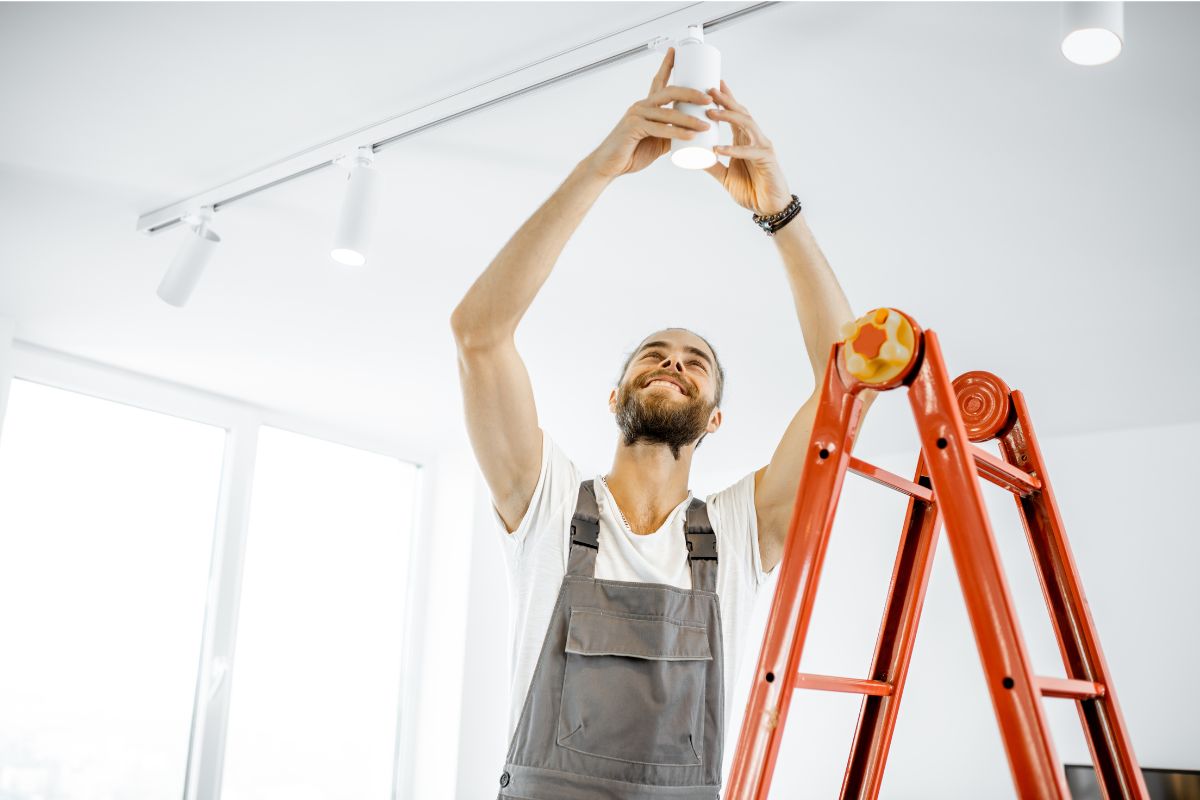Introduction
In recent years, businesses have been prioritising saving energy in their premises to help reduce energy costs and meet their environmental goals. But as a business owner, whether you run a small boutique or a multi-site chain, it can be difficult to know where to start when it comes to reducing energy consumption in your commercial buildings.
Our commercial energy saving tips will help you reduce your business’s energy consumption, from getting to know your energy better, to investing in sustainable change.
Why Is Reducing Energy Consumption in Commercial Buildings Important?
As part of the UK’s Net Zero target, the Energy Performance Certificate (EPC) standard for commercial buildings is changing. By 2027, the EPC standard is being raised to category C, and is expected to rise again by 2030.
However, in 2023, 30,000 commercial buildings were rated D-G for efficiency, equating to 28% of non-domestic buildings, and only 0.26% were rated band A for efficiency. This means that many of the UK’s commercial buildings have a long way to go to achieve good levels of energy efficiency.
Reducing energy consumption in commercial buildings can not only help your business reach net zero goals and reduce your carbon footprint, but it can also boost your business in other ways.
There are many benefits of reducing your commercial energy usage, such as saving on your energy costs. By making small changes to your building and the way you use energy, you can cut your costs, and invest this money back into your business.
According to a study by The Round Up, 84% of customers say that poor environmental practices will alienate them from a brand or company. Embracing a greener business mentality, from making commercial energy savings to reviewing the sustainability of your supply chain, can help build a positive reputation for your business.

What Are the Main Causes of Energy Waste and Overconsumption?
Unfortunately, energy waste and overconsumption are commonplace, especially in commercial properties, with older buildings and appliances being the main culprits.
Factors such as poor ventilation or insulation can mean that your heating and cooling systems are working harder than they need to to keep your building at your desired temperature. Similarly, old or damaged appliances are notorious for wasting energy.
In commercial buildings, poor energy management can also contribute to energy waste, making it important to examine and improve your employees’ energy behaviour. Something as simple as leaving a light on when not needed or keeping a computer turned on over the weekend can contribute unnecessarily to your overall consumption.
Commercial Energy Saving Ideas and Tips
Get to Know Your Energy Better
The first step towards reducing energy consumption in commercial buildings is to gain a deeper understanding of how you use your energy.
- Conduct an energy audit – this is a great way of taking a holistic approach to reducing your energy consumption. An energy audit involves examining your usage patterns to get an overall picture of your energy behaviour, taking into account all areas of your business. This will enable you to spot areas where you can improve.
- See how your business compares – have you ever wondered how much other businesses are paying for their energy? Our Energy HealthCheck tool lets you find out if you’re paying too much for your energy in under 2 minutes. With just a couple of details about your business type and size, you can see how your business energy costs measure up to your competitors and access a range of free guides filled with commercial energy saving ideas.
- Manage your energy the smart way – by getting a smart meter for your business, you can not only save time with automatic meter readings, but you can also get greater insights into how you use your energy. This can help you to identify areas where you can make changes.

Upgrade Your Building
Studies show that energy efficient buildings can make more comfortable workplaces and, in turn, increase productivity levels. Although older buildings are known to be less energy efficient, even in newer builds there are steps you can take to optimise your energy use even further.
- Stay on top of repairs – this applies to both your equipment/appliances and the building itself. For example, ensuring you fix any draughts or broken windows will help to keep your temperature regular without needing to rely so heavily on heating and cooling systems.
- Choose the right lighting – an often-overlooked way to reduce energy consumption in commercial buildings is optimising your lighting. Making use of natural lighting is the best way to avoid additional energy costs, however, swapping to LED lighting is a close second. Using LED bulbs as opposed to fluorescent ones can use up to 90% less energy, as well as lasting 5 times longer. To take this even further, you could even install light sensors to make sure lights turn off automatically when not in use.
- Choose the right appliances – when buying electrical appliances for your business, it is important to check their energy efficiency rating. Products will be rated A-G and should also tell you how much energy they use in kWh, so you can make the most energy efficient choices.
- Upgrade your windows – although this may seem a costly investment, having your windows double or even triple glazed can make a huge difference to how well your building retains precious heat in the winter and will also help to prevent cold draughts.
- Optimise your heating and cooling – Did you know that overheating your building by just 1 degree can increase the cost of your energy by 8%? That’s why it’s important to find the optimal temperature for your workplace, this usually ranges between 20-23 degrees Celsius, but this can vary depending on your specific business. Try setting your heating timers to come on just before your open for business, so you’re not heating your building overnight unnecessarily and be sure to replace your systems when they become less efficient.

Get Your Team On Board
One of the most effective ways you can reduce energy consumption in commercial buildings is by educating your staff on the importance of saving energy and encouraging them to help you implement new initiatives.
- Sustainability training – this is a great way of getting your whole team up to speed on why saving energy is important and how it can affect them personally. You could even delegate specific tasks to people, e.g. one person is responsible for turning off all lights at the end of the day.
- Change up the rules – there are several small changes you can make to your workplace rules that can help to reduce your energy consumption. For example, in offices, you could consider relaxing the dress code to allow employees to wear jumpers in the winter and take off layers in the summer, helping them to stay at a comfortable temperature without the need for heating and cooling systems.
- Encourage small changes – simple swaps, such as using stairs rather than lifts or having ‘tea rounds’ to avoid repeatedly boiling the kettle, can add up to significant savings in the long run.
- Incentivise saving – try making energy saving fun! You could do this by creating competitions and games focused around saving energy and encouraging the whole team to get involved.

Ready to start saving on your energy bills?
If you’re ready to start reducing energy consumption in commercial buildings, Yü Energy can help! We have created a range of energy management tools to help you take control of your business energy and start making savings.
Get your free quote from Yü Energy in just 30 seconds and secure competitive rates, packaged into a tailored contract for your business.

 0115 975 8258
0115 975 8258

